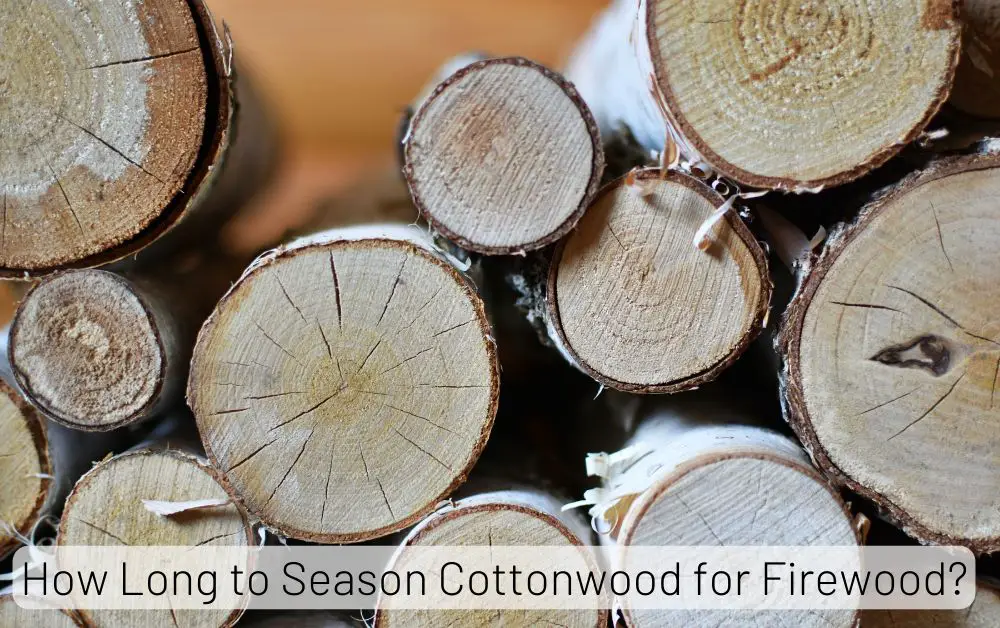As winter’s chill settles in, the crackling warmth of a fireplace becomes an inviting sanctuary. For those who rely on wood-burning stoves or fireplaces to keep the cold at bay, choosing firewood is a critical decision beyond mere convenience. Among the myriad options available, hemlock often finds itself in the spotlight, prompting the question: Is hemlock good firewood?
Overview
Hemlock is known for making good firewood suitable for fireplaces, wood stoves, and campfires. With a moderate heat output, it offers a consistent and reliable source of warmth. However, when compared to hardwoods such as oak, hemlock may burn a bit more quickly.
Introduction to Hemlock as Firewood
Hemlock, a softwood tree from the pine family, is commonly found in North America.
While it may not be the first choice for firewood, its unique qualities make it worth considering.
Is Hemlock Good Firewood?
Yes. In the Softwood category, hemlock is considered good firewood, producing 19.3 million BTUs per cord with clean-burning properties. Hemlock wood burns cleanly, producing minimal smoke or odor, and it generates very little creosote, making it safe for indoor or enclosed area use. However, it should not be directly compared to hardwoods as firewood.
For optimal results, combine hemlock with other hardwoods such as oak or maple. Hardwoods generally have higher energy content and burn more slowly, while hemlock can provide a quick and easily ignitable flame.
| Hemlock Firewood Properties | Value/Description |
|---|---|
| BTU (British Thermal Units) | Moderate to high, around 19-21 million BTU per cord |
| Smoke | Moderate, may produce more smoke compared to hardwood |
| Sparking | Low to moderate sparking |
| Ease of Splitting | Generally easy to split, especially when seasoned |
| Ease of Seasoning | Moderate, benefits from proper seasoning for lower moisture content and better burning efficiency |
| Moisture Content | Freshly cut Hemlock can have high moisture content; should be seasoned for optimal burning (aim for 20% or lower) |
| Coal Production | Moderate coal production, can leave behind some coals |
| Aroma | Pleasant, with a mild, sweet scent |
| Density | Medium density, providing a good balance between quick ignition and longer burn times |
| Resin Content | Moderate resin content, may contribute to longer-lasting fires |
| Suitability for Indoor Use | While it can be used indoors, proper ventilation is crucial due to moderate smoke production |
Pros of Hemlock Firewood
Hemlock firewood, like other types of firewood, has its own set of advantages and characteristics that make it suitable for certain uses.
- Hemlock is known for its relatively high heat output when burned, making it effective for heating purposes and providing warmth in indoor spaces such as homes or cabins.
- Hemlock trees are commonly found in various regions, making hemlock firewood relatively easy to obtain in areas where these trees grow. This can contribute to the accessibility and affordability of hemlock firewood.
- Hemlock wood is often softer than some hardwoods, making it easier to split. This characteristic can be beneficial for those who split their own firewood, as it requires less effort and may be more manageable.
- Hemlock firewood has a distinct aroma when burned, which some people find pleasant. This can add to the overall experience of using hemlock firewood in a fireplace or wood stove.
- Hemlock wood tends to have a higher resin content compared to some other softwoods. This resinous quality can contribute to a longer burn time and may be beneficial for kindling or starting fires.
Cons of Hemlock Firewood
- Hemlock has a higher resin content, which can lead to moderate creosote buildup in chimneys. This can pose a fire hazard and requires regular maintenance.
- While hemlock has a high heat output, it tends to burn relatively quickly compared to hardwoods. This means more frequent refueling may be necessary, especially during longer heating periods.
- Due to its resinous content, hemlock may not be the best choice for cooking. The wood can produce more ash and smoke, and the resin may impart an undesirable flavor to food.
- Hemlock is generally less dense than hardwoods, which means it may not provide as long-lasting heat. This could require more frequent additions to the fire.
- Softwoods like hemlock may have a higher likelihood of sparking compared to hardwoods. This can be a safety concern, particularly in open fireplaces.
- Hemlock wood has the tendency to crackle and pop while burning, which can be noisy and may also contribute to the ejection of sparks.
- Hemlock tends to produce coals that are less long-lasting than some hardwoods. This can be a consideration for those who prefer a fire that continues to radiate heat even after the flames have died down.
- The smoke produced by burning hemlock may be less dense than that of some other hardwoods. While this might be seen as an advantage by some, it can also mean that the smoke does not travel as far up the chimney, potentially leading to the formation of creosote in the flue.
Related Post : Can You Burn Magnolia Wood?
How to Use Hemlock Wood as Firewood Efficiently.
- Allow hemlock wood to dry for at least six months to a year before burning.
- Store the firewood in a dry, well-ventilated area, such as a woodshed.
- Increase surface area and aid in drying by splitting hemlock wood into smaller pieces.
- Combine hemlock with hardwoods like oak for a balance of quick ignition and sustained burning.
- Start with small pieces as kindling, gradually adding larger pieces as the fire builds.
- Use a grate or elevate the wood to ensure proper airflow around the firewood.
- Avoid overcrowding to prevent reduced airflow and incomplete combustion.
- Softwoods can lead to increased creosote buildup; regular chimney cleaning is essential.
- Keep an eye on the fire for even and efficient burning; adjust airflow and add wood gradually.
Related Post: Is Burning Pecan Wood Safe?
Final Thoughts: Is Hemlock Good Firewood?
In conclusion, Hemlock can be good firewood if used in the proper context. Understanding its properties, caloric value, and potential challenges is crucial for making an informed decision. Consider your needs, whether ambience, quick heat, or sustainable resourcing, to determine if Hemlock aligns with your requirements.
By weighing the pros and cons, you can unlock the potential of Hemlock as a valuable addition to your firewood choices.
Affiliate Disclosure: Fireplaceadviser.com is a participant in the Amazon Services LLC Associates Program. We may earn a commission when you click on certain links on this site and purchase.

Hello!! I am Jamal Khan. I often fix my home electric heaters and gas stove problems and research the common issues in the heating units to improve my knowledge and expertise. The aim of establishing fireplaceadviser.com is to share my expertise and knowledge with my audience.








